
Straw door
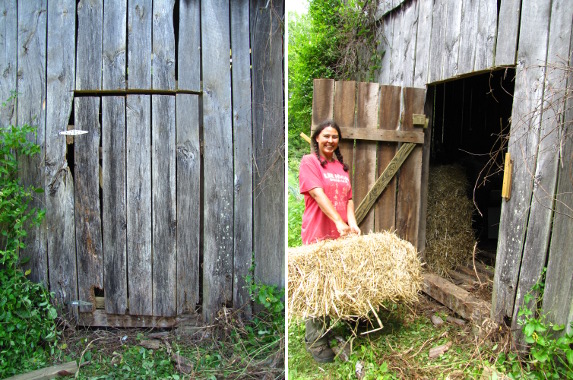
I love straw...
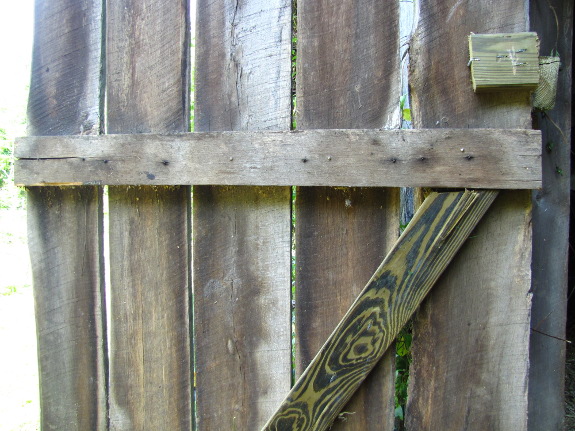
...and I love my new straw door. I call it the Secret
Door because our helper cut it straight out of the wall of the barn, so
the boards line up and you can hardly tell a door's there.
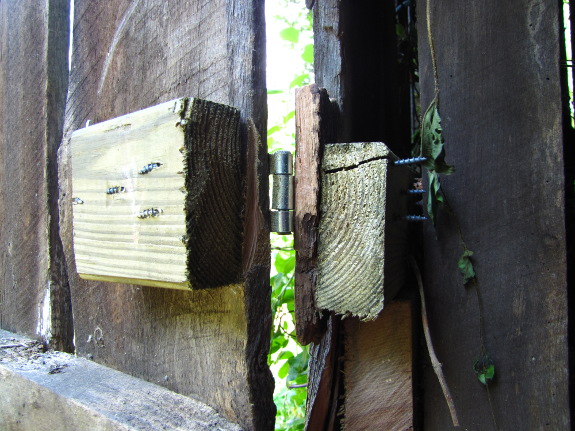
He added a few screws,
two hinges, a bit of a furring strip (for the latch), and a two by four
(to add structure and give the hinges someting to bite into).
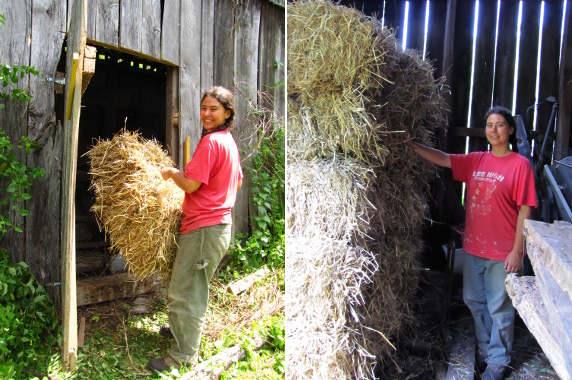
Now I can stack my straw
inside and access it easily for the garden. (Or stockpile it for
later.)
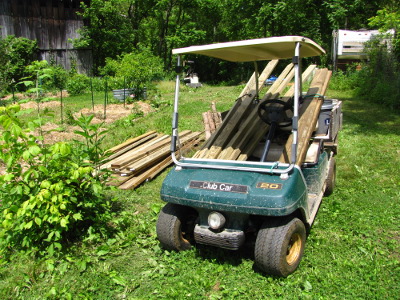 It's been dry enough to haul,
so we're actually trying to stockpile all kinds of supplies. Our
helper told us about a straw opportunity that's presented a bit of a
conundrum, though.
It's been dry enough to haul,
so we're actually trying to stockpile all kinds of supplies. Our
helper told us about a straw opportunity that's presented a bit of a
conundrum, though.
His friend has dozens of
bales worth of loose straw in his barn to give away. The cows got
in and broke the bales apart and the friend just wants the biomass
gone. Sounds awesome, right?
The problem is that the
straw was grown in rotation with tobacco, which means it's probably
full of tomato
blight. I
honestly don't know enough about the blight fungi to determine how much
would be present on straw --- the fungi only live on members of the
tomato family, but they also stick around in the soil and could have
splashed up onto the straw during a rain. I also don't know how
far I'd need to keep the straw away from a tomato-growing area to
prevent adding more blight to our mix, or how deep in a kill mulch I'd
have to hide it.
So, do I want the free
biomass or not? I'm a bit too giddy with my straw door to think
straight right now. Maybe you can help me decide?
Want more in-depth information? Browse through our books.
Or explore more posts by date or by subject.
About us: Anna Hess and Mark Hamilton spent over a decade living self-sufficiently in the mountains of Virginia before moving north to start over from scratch in the foothills of Ohio. They've experimented with permaculture, no-till gardening, trailersteading, home-based microbusinesses and much more, writing about their adventures in both blogs and books.
Want to be notified when new comments are posted on this page? Click on the RSS button after you add a comment to subscribe to the comment feed, or simply check the box beside "email replies to me" while writing your comment.
- Remove comment
- Remove comment
